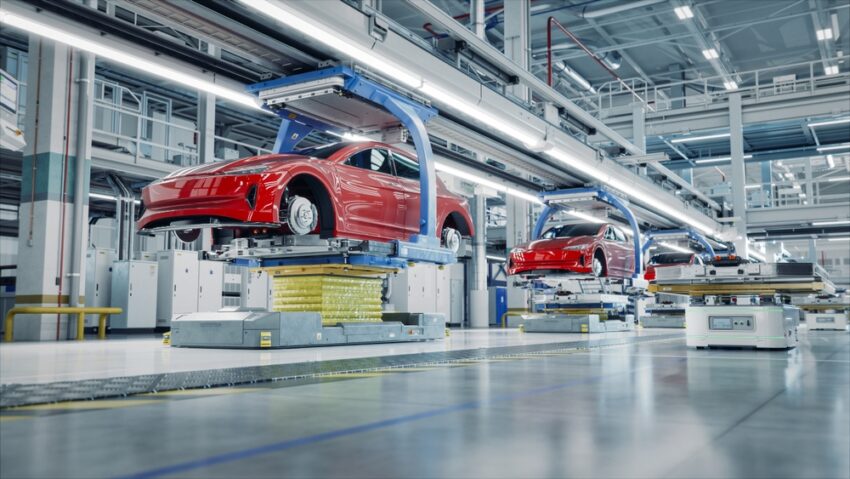Car production in the UK fell by 20.6% year-on-year in September, marking a significant decline as manufacturers refocus their operations on electric vehicles (EVs) and face shrinking export volumes.
This shift towards EVs has sparked interest in various promotional events, including opportunities to win a car through exciting car competitions that highlight the latest electric models. Additionally, some companies are even offering chances to win a campervan, showcasing the growing appeal of electric recreational vehicles.
According to data from the Society of Motor Manufacturers and Traders (SMMT), output for both domestic and export markets dropped significantly, with production for the UK market falling by 20.8% and exports declining by 20.6%.
September 2022 had been a particularly strong month for UK car production, the best since 2020, making the year-on-year comparison more pronounced. Despite the September decline, production for the UK market has grown by 6.5% in the year to date. However, this has been offset by a sharp 14.4% drop in exports, resulting in an overall year-to-date production decline of 10.2%, with 592,862 units produced so far in 2024.
Overseas markets hit hard
The decline in export volumes has been felt across several key overseas markets. Shipments to China, one of the UK’s major car export destinations, dropped by 23.1% in September as the country grapples with an economic slowdown. While China’s GDP grew by 4.6% in the third quarter of 2024, this was below the government’s 5% target, impacting demand for imported goods such as vehicles. In response, Beijing has recently introduced measures aimed at bolstering growth in the world’s second-largest economy.
Exports to the EU, the UK’s largest export market for cars, also suffered, dropping by 28.6% in September to 26,825 units. This sharp fall in shipments to the EU coincides with weaker car sales across the bloc. According to the European Automobile Manufacturers’ Association, EU car sales fell by 18.3% in August, the lowest in three years, with major markets like Germany, France, and Italy experiencing double-digit declines.
However, there was a bright spot in the US market, where exports from the UK rose by 24.6% to 8,210 units in September, accounting for 16% of total UK car shipments.
Shift to electric vehicles
The fall in production has been largely attributed to carmakers retooling their factories to focus on the production of electric and hybrid vehicles, a shift driven by the UK’s goal of phasing out internal combustion engine vehicles by 2030. Nearly a third of all cars produced in the UK in September were either battery electric, plug-in hybrid, or hybrid models, reflecting the industry’s transition toward greener technologies.
Mike Hawes, chief executive of the SMMT, described the production declines as “short-term” and anticipated, but stressed that the car industry requires “the necessary industrial and market conditions” to stimulate growth. Hawes called on the government to use the forthcoming Autumn Budget and industrial strategy to bolster business confidence, attract investment, and secure the competitiveness of the UK’s automotive sector.
Maintaining the UK’s manufacturing stronghold
Despite the production slowdown, the automotive industry remains the UK’s largest exporter of manufactured goods. The sector increased its share of total exports to 13.9% in the first half of 2024, underlining its importance to the UK economy. As manufacturers continue to pivot towards zero-emission vehicles, they will rely heavily on supportive government policies and investment to maintain their global competitiveness and meet the rising demand for electric cars.


